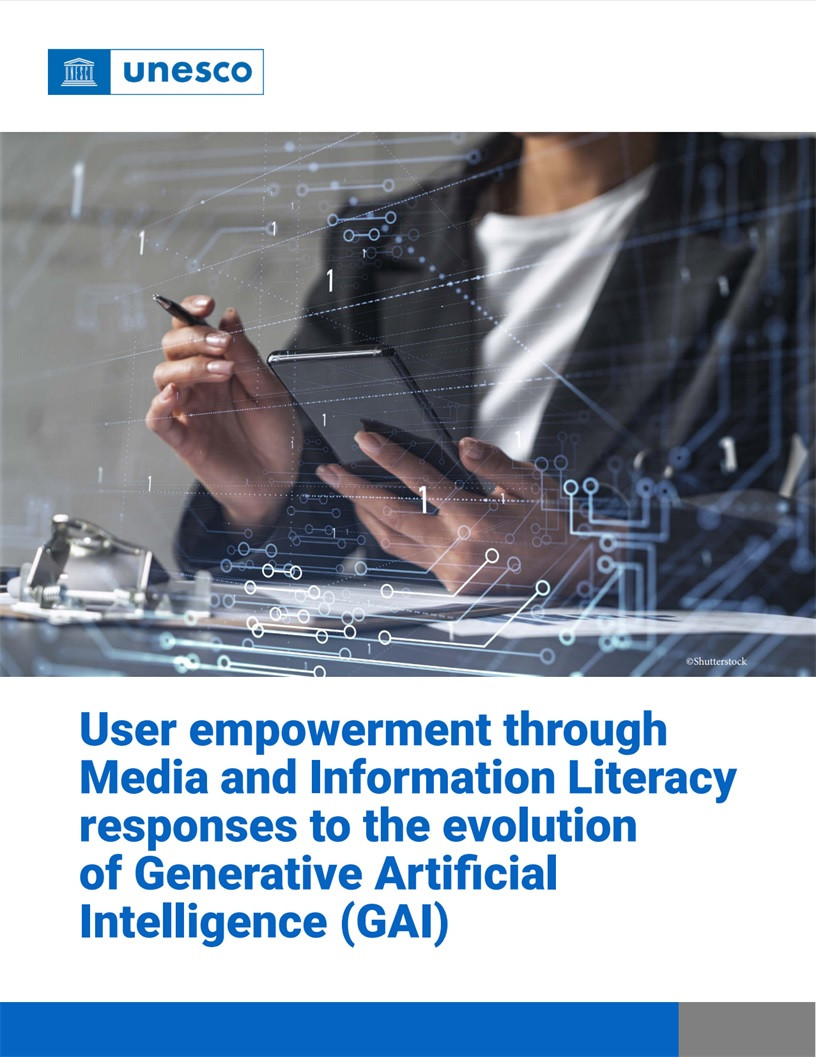
GCED Basic Search Form
Quick Search
Close
Usted está aquí
Resources
User Empowerment through Media and Information Literacy Responses to the Evolution of Generative Artificial Intelligence (GAI)
Lugar de publicación | Año de publicación | compilación:
Paris | 2024 | 16 p.
Región:
Global

Key messages
- Artificial Intelligence and Generative AI are having a significant impact on people’s engagement with information, digital technology, and media. This raises concerns about control human agency and autonomy over information, decision making, gender equality, and freedoms in general.
- User empowerment through Media and Information Literacy (MIL) as a response to GAI, which is still in its infancy, needs to be fully deployed and public policy makers should be concerned in developing it well from the outset.
- MIL is necessary to build people’s ethical use of synthetic media, i.e. video, text, image or voice content fully or partially generated by AI-systems.
- The societal opportunities being deepened by GAI include: access to information, participation, employability, creativity, lifelong learning and creative industries.
- The societal potential risks being deepened by GAI include: disinformation, loss of data privacy, threats to integrity of elections, surveillance, lack of source reliability, discrimination, including gender-based and racial stereotypes, and copyrights violations.
- Building on familiarity in the face of urgency, AI literacy can be embedded in MIL to teach and train all sorts of communities (educators, librarians, youth workers, women networks, etc.).
- Ensuring explainable AI is key to both the design of MIL curricula and to the design of policy and governance around GAI.
- To build trust in information and education, source reliability needs to be revised to encompass the different types of “evidence” provided by GAI.
- MIL can train informed people from outside the technology industry to participate in the design, implementation and regulation of AI, in a manner that remains human-centered, gender-responsive and mindful of the public interest.
- Training for MIL is within the remit of governments and institutions of higher education, which have a duty to ensure MIL policy actions are sustained and strengthened over time, to be future-proof, in the face of an ever-evolving AI/GAI.
URL del recurso:
Archivos:
Tipo de recurso:
Informes de conferencias y programas
Tema:
Derechos humanos
Alfabetización mediática e informacional / ciudadanía digital
Nivel de educación:
Atención y Educación de la Primera Infancia (AEPI)
Educación Primaria
Educación Secundaria
Educación Superior
Educación Permanente
Educación y Formación Técnica y Profesional (EFTP)
Educación no formal
Palabras claves:
media education
Information literacy
Digital skills
Artificial intelligence
